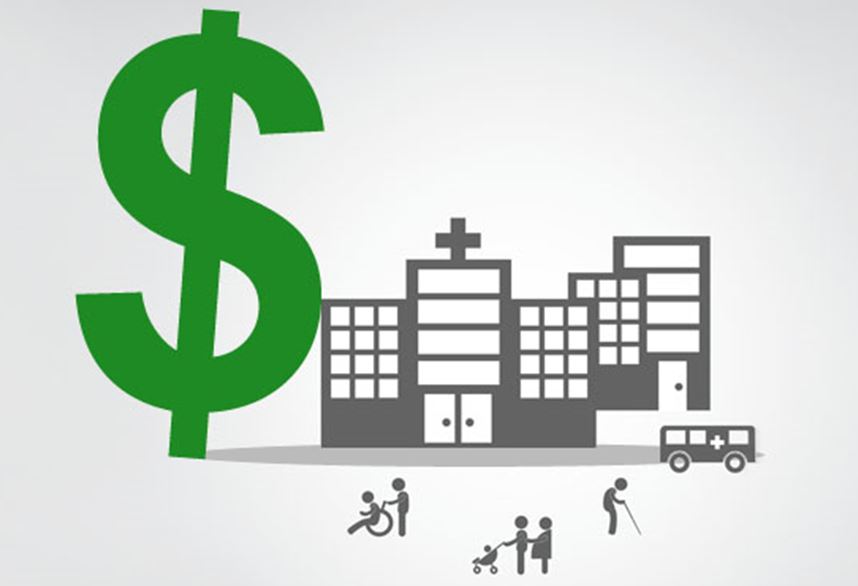
October 25, 2017
Thousands of Thai patients are checking out of private hospitals with hefty bills – creating many doubters who blame the “medical tourism policy” which attracts a growing number of patients from higher-income nations.
The Medical Council, however, cautions critics to think twice before trying to disrupt Thailand’s booming medical tourism sector.
Critics call for standardised fees at private hospitals, notably for drugs
Viroj Na Ranong, a public health economist with the Thailand Development Research Institute, said the major reason for soaring medical treatment prices at private hospitals was the medical hub policy.
And the government’s move to control medicine prices and standardise private hospitals’ medical care costs had yet to consider the effect of medical tourism.
“The arrival of medical tourists from abroad who are willing to pay high treatment costs allows private hospitals to make a profit from these rich customers by increasing treatment costs,” Viroj explained.
Preeyanan Lorsermvattana, president of Thai Medical Error Network, said: “They [the hospitals] don’t have to care if this expensive medical treatment will affect Thai patients because they still have rich foreign patients.”
The medical hub policy should be reconsidered, she said, because private hospitals are focusing more on foreign customers who can be charged 50 per cent higher than Thai patients. As a result, the overall outlook for fees would be an increase for local patients in order to keep a balance.
Viroj suggested the government tackle the problem by implementing a medical tax on tourists to lower their purchasing power, forcing private hospitals to cut their treatment fees.
“The money from collecting this tax could also be spent on our medical system and invested in the training of new doctors,” he said.
Medical Council secretary-general Dr Samphan Komrit had a different view.
“The medical hub policy is the only hope for Thailand to be among the world’s best [for medical services]. [Medical tourism] is a very profitable business, which generates more than Bt1 billion in profit for the country annually. Would you just stop this policy because hospital costs were expensive?” Samphan said.
According to the Public Health Ministry and Kasikorn Research Centre, 2.5 million international patients received medical treatment in Thailand in 2012, generating up to Bt140 billion in income. Thailand claimed to be the world’s first destination for medical tourism.
But Preeyanan has warned that the whole Thai healthcare system could collapse because of overpriced medical care in private hospitals.
Action needed to undertaken to save the health system, she said, such as the setting up of a central agency to be a clearing house, careful pricing for medicines and reconsidering the medical policy to ensure the problem is solved.
“If the problem [of overpriced healthcare] is not solved in time, this could be mark the end of the government medical system – because all kinds of charges including medical fees, services and for medicine would have to increase, according to private hospitals,” she warned.
She suggested that a “price control panel” should limit medical fees at private hospitals to a fair price, and said they should separate fees for medicine from other services. Also, the price for medicines should not be more than 15 per cent above prices at state hospitals.
She emphasised the importance of setting prices for medical drugs. The central price for all drugs had to be carefully calculated according to the sale price at state hospitals nationwide and pharmacies, as well as the budget price of each drug. A possible obstacle may be if drug companies conspire with private hospitals to increase medicine prices.
The Medical Council’s Samphan said substantial measures were required but warned that they could be harmful to private hospitals if efforts to tackle such problems were unclear.
He highlighted “free emergency healthcare”, saying it was a good policy, but noted that definitions of “critical” or “emergency” were not clearly stated.
“This would cause a problem right after the policy is implemented. Some people could go to the nearest hospital, claim they have a serious health problem which indeed was not that serious – and the result would be wasted time for medical staff, the patients themselves and those really in a critical condition.”
He said the medicine price control policy was good and quite fair to all stakeholders. However, the ministry had to be clear on how to set the price of each medicine because there was not only the cost of drugs – hospitals also had to pay for management and service costs too.
“People who go to private hospitals know they have to spend more money there than in a public hospital to receive better care. What we should do is to make sure private hospitals do not charge too much with unclear billing – and [we need to] strengthen our National Health Security system to let the people have access to quality but cheap healthcare,” he said
Source: Pratch Rujivanarom, Pakawan Rojanasingsawad, THE NATION June 22, 2015 1:00 am
Photo source: http://khn.org
